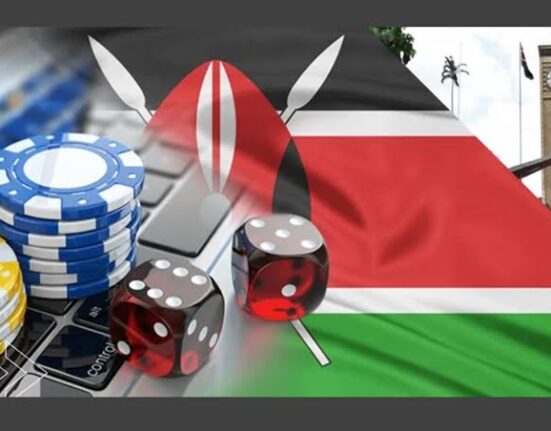By Billy Gichohi
In the high-stakes arena of Kenya’s multi-billion-shilling betting industry, where profit margins often eclipse principles, Dr Jane Mwikali, the Chairperson of the Betting Licensing and Control Board (BLCB), has emerged as an unflinching sentinel of social justice.
Her tenure, marked by a fierce battle against multinational betting conglomerates and their well-oiled lobbyist machinery, has redefined regulatory governance in Kenya in unmistakable ways. Where others might have buckled under corporate pressure, Dr Mwikali has stood firm as she shields Kenya’s youth, vulnerable households with resolute ethical integrity in an industry accused of predatory exploitation.
Dr Mwikali assumed office when Kenya’s betting sector was too lax on oversight. Multinational firms, wielding slick marketing campaigns and political connections, had normalised gambling as a “get-rich-quick” fantasy, particularly among Kenya’s low-income demography. By 2022, Kenya ranked third in Africa in gambling activity, with 76% of bettors aged 18–35 and spending over 40% of their income on wagering.
Multinational betting firms, sensing the threat of stricter oversight, deployed a battalion of lobbyists, lawyers and PR strategists to Nairobi to counter the moves of a new sheriff in town who would bend rules to accommodate their shenanigans.
Backed by war chests rivalling state budgets, the betting big boys pushed for watered-down regulations, tax exemptions, and the shelving of harm reduction policies.
Their tactics ranged from covert public smear campaigns to framing Dr Mwikali as an “anti-business” agent. If I recall, one brazen move had a foreign firm propose a Ksh. 500 million CSR initiative to “support youth programmes” to relax BLCB’s advertising curbs.
Dr Mwikali’s response was unequivocal. She was clear in her mind that CSR cannot be a Trojan horse for exploitation on which to trade short-term handouts for long-term harm. That case was effectively closed forthwith.
To counter the lures of big brother, undeterred Dr Mwikali engineered a regulatory framework prioritising systemic safeguards over performative philanthropy.
Key among her reforms include, one, mandating that 15% of betting revenues fund addiction treatment centres, public awareness campaigns, and vocational training for recovering gamblers.
Since 2023, the fund has supported 8,000 individuals through counselling and microloans.
Two, banning celebrity endorsements, limiting betting ads to post-9 PM slots and requiring all platforms to display addiction helplines.
Three, requiring operators to implement real-time spending limits and blocking users exceeding pre-set thresholds and, four, revoking permits of non-compliant firms and blacklisting foreign operators accused of tax evasion and underage targeting.
The backlash was swift. Lobbyists petitioned Parliament but Dr Mwikali, backed by civil society and public sentiment, held her ground. Her defiance, thankfully, found an ally in data. By 2024, the BLCB reported a 30% drop in gambling-related bankruptcy cases and a 25% increase in tax compliance from regulated operators.
Dr Mwikali’s crusade has transcended policy to take on the shape of a cultural reset. By redirecting Ksh 4.2 billion from betting revenues to education grants and addiction rehabilitation, she reframed gambling from a vice to a vector for social equity.
The Futures Assurance Programme, funded by betting levies, has awarded scholarships to 3,200 students from gambling-affected households in the recent past while the Mama Mkubwa Initiative continues to empower single mothers with seed capital to rebuild livelihoods.
Dr Mwikali’s approach has asserted a new regimen in betting circles making it clear that regulation isn’t about control but rather about compassion.Though her term concludes in just a few months ahead, Dr Mwikali’s legacy is already indelible.
She will leave behind a blueprint for many grappling with the ethical quagmire of gambling and a challenge for regulators to be guardians first and auditors second. Her tenure also exposed the perils of unchecked corporate influence, prompting calls for stricter lobbyist registration laws in Kenya.
As global betting firms pivot to more malleable markets, Dr Mwikali’s stand serves as a clarion call that affirms that many industries built on exploitation will always lobby harder even when the stakes demand that human dignity remains uncompromised.
In an era where regulatory capture is often the norm, Dr Mwikali’s story is a testament to the power of principled leadership and an abiding reminder that one resolute voice can silence the roar of giants.
Gichohi is an aspiring politician currently working for a Nairobi-based international organisation that supports small-scale farmers undertaking transformative farming projects in East Africa.












Leave feedback about this